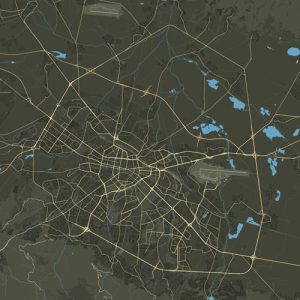Gorublyane, situated in the southeastern part of Sofia, is an integral district within the Mladost district of Sofia Municipality, boasting a population of 6,889 residents. The prominent Samokov highway traverses Gorublyane, serving as the primary route to the town of Samokov and the renowned winter resort of Borovets. Despite its significance, much of the neighborhood still lacks a sewage system. Notably, Gorublyane is home to the 82nd “Vasil Evstatiev Aprilov” Primary School and the “Vasil Levski – 1926” Community Center. The community center is renowned for various artistic groups, such as the Dance Club “Pearls,” children’s vocal group “Karamelcheta,” and Trio “Gorublyane.” Additionally, it houses accordion and piano schools, contributing to the cultural vibrancy of the area.
Gorublyane is distinguished by its numerous car dealerships, collectively forming one of the largest used car markets in South-Eastern Europe. The neighborhood’s football team, Whirlwind, and the junior players of the professional Akademik Sofia both utilize the local stadium for training.
In the western part of Gorublyane, west of Vihar Stadium, lies the small Gorublyane housing complex, commonly referred to as the Experimental housing complex. Both Gorublyane district and the Experimental housing complex share the postal code 1138.
Historically, Gorublyane was an independent village until its incorporation into Sofia in 1978. Folklore suggests that Gorublyane predates Ottoman rule in Bulgaria.
During the Balkan War in 1912, two individuals from Gorublyane volunteered in the Macedonian-Odrina militia. The village’s name has evolved over time, recorded as Koroulia in the Zografian Pomennik from 1526 to 1728. The transition from “k” to “d” in the name may be synonymous with the pair of words “koria-gora.” Etymologically, Gorublyane signifies “wood (forest) in the middle of the field.” Historical variants of the name include Koruble in 1420 and Gurublyan in 1576.

